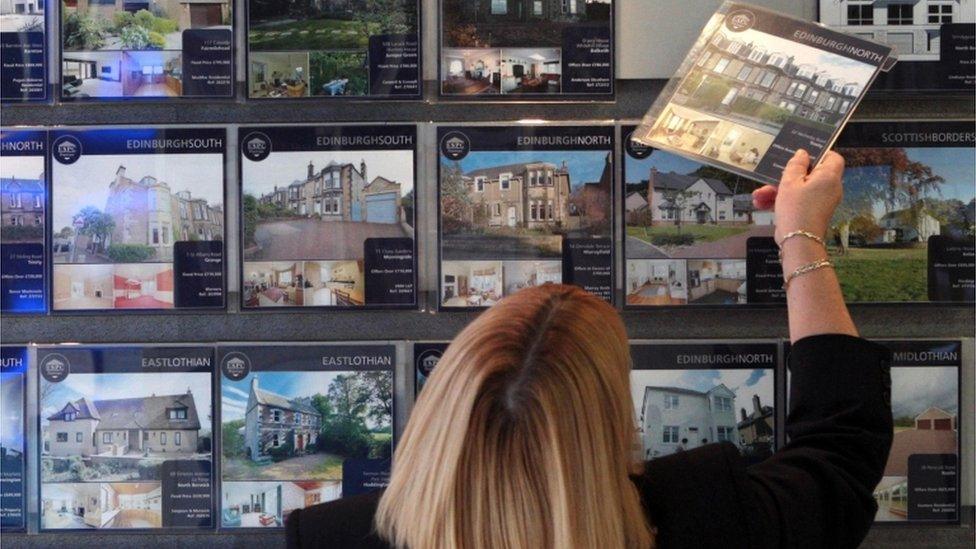Welcome to the Holyrood Hustings
- Published
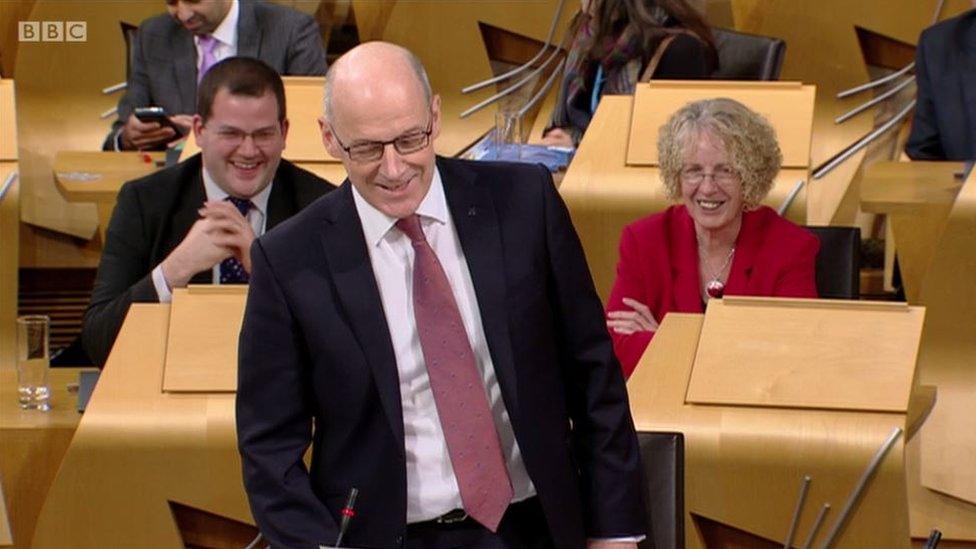
There was some seasonal good cheer at Holyrood - although it quickly dissipated
They mean it, you know. Our political leaders are sincere when they offer each other - and the wider community - a guid New Year (or the happy equivalent). Those Hogmanay hugs are for real.
Indeed, Willie Rennie apologised for being insufficiently expansive when encountering Nicola Sturgeon a day or so ago in Glasgow. Apparently, they exchanged relatively cheery waves (think Brief Encounter, Govan style). But not, at that point, the customary January salutations.
This Mr Rennie swiftly remedied. As did the FM. For a moment, it was like a rerun of BBC Scotland's splendid Hogmanay show. But without the Bay City Rollers, or Jackie Bird.
Equally, however, there are limits. The seasonal bonhomie is evaporating and that right speedily. As well as being New, this year is electoral. Scotland goes to the polls in May (and also perhaps later in the year for the EU Referendum).
So rival policies and competing strategies were to the fore in the exchanges during the debate which dominated today's proceedings in the chamber.
The Holyrood Hustings
The ostensible topic was how Scotland might reasonably go on Supporting Public Services, Tackling Inequality and Growing the Economy. The real topic, of course, was that election in May.
Welcome to the Holyrood Hustings.
The individual policy offers were intriguing in themselves. For example, Labour promised to top up the bonus payable to potential first time home buyers by chucking an extra £3000 into the pot already established by the UK Government.
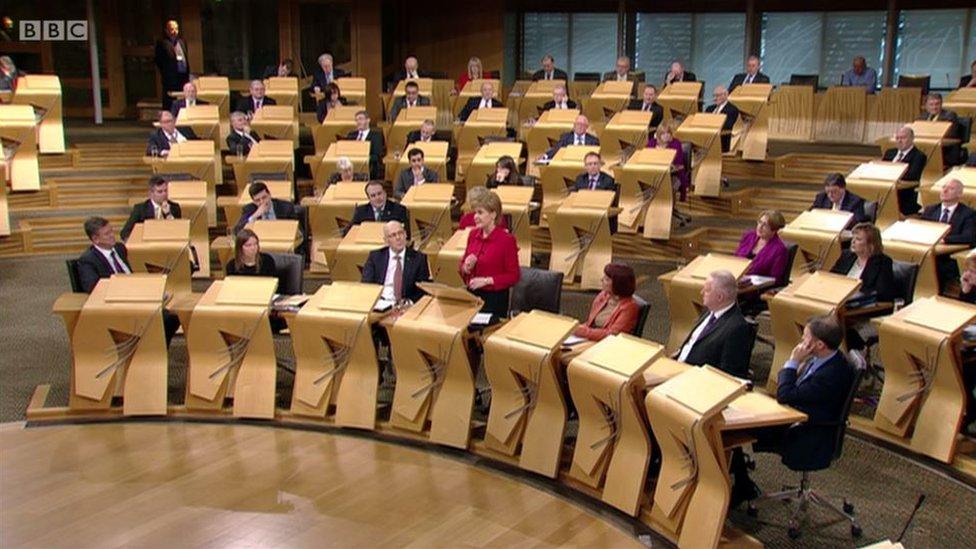
Nicola Sturgeon set out the SNP's election platform during a Holyrood debate
However, it is the strategy - the positioning - which is perhaps most interesting. Instead of defaulting to the proletarian Left, as some might expect in these Corbynite days, Labour's first big offer in Scotland is to back house purchases for those who are already saving.
This policy replaces the offer to compensate those in Scotland who were set to lose cash from the early abolition of tax credits by the Chancellor.
On the face of it, a recalibration - from supporting the poorest to backing those seeking to rise up the property ladder.
But caveats. Firstly, the tax credit offer spread far more widely than the lowest income decile. That, indeed, was one reason advanced by the Chancellor for reviewing the credits system in the first place.
Secondly, Kezia Dugdale insists that helping young families to get their own home is fully in keeping with Labour values. It was, she argued, both anti-austerity and aspirational.
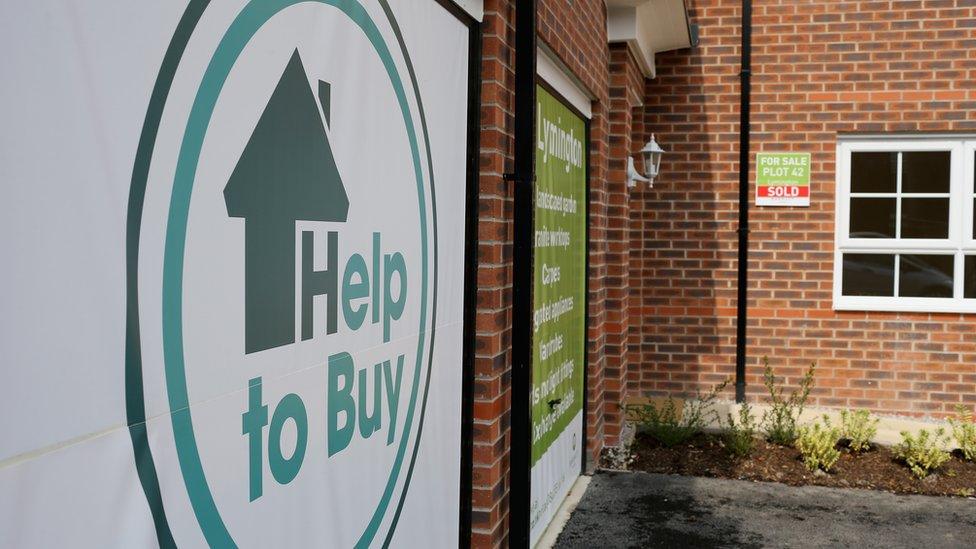
Labour announced a new policy to help first-time house buyers
Still, the offer attracted attention and derision in equal measure from both the SNP and the Tories. The SNP noted other endeavours to help first time buyers - and jibed that Labour were simply pinching a Conservative plan.
For their part, the Tories queried the source of funding. Labour say they'd forego a planned SNP cut in Air passenger duty and a planned Tory hike in the starting level for upper rate tax which would also reduce revenue; no new money, say the Tories.
Labour, I suspect, will be entertained by the degree of political contumely which their plan has drawn. As Alex Salmond is fond of saying, "the mair they talk, I'm kent the better."
'Tartan Tories'
Further, despite the individual policy, Ms Dugdale's wider strategy in her two speeches today (one at Edinburgh University, one in the chamber) was to suggest that the SNP talk Left but walk Right.
Indeed, she even borrowed the phrase "Tartan Tories". I expect Nicola Sturgeon experienced a warm glow on seeing that one resurrected.
Her essential argument was that the SNP simply sought to manage the status quo - without generating the radical change which she said was essential.
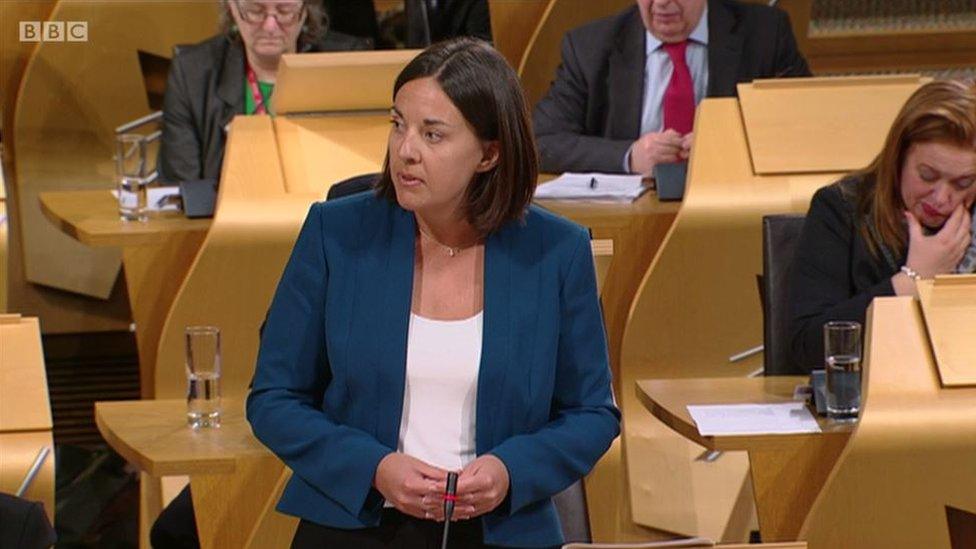
Kezia Dugdale made two speeches - one in chamber, and one at Edinburgh University
Ms Sturgeon's party, of course, start this election period with an apparently commanding lead in the polls. She stressed however that she would not take a single vote for granted. Sensible - and in keeping with her generally cautious demeanour.
The SNP's pitch, she said, would be based upon "record, ideas and vision." After a litany of proclaimed successes for her government, she promised further reform: integrating health and social care, doubling childcare, building economic growth through enterprise and exports.
Stand by also for announcements on tax plans: not for the immediate future. John Swinney has already said he won't use the Calman tax plans which take effect from April (with no capacity to distinguish between standard and upper rates).
No, Ms Sturgeon is talking about the potential use of the Smith tax plans as set out in the current Scotland Bill. It will be intriguing to see the various parties deal with that dose of forward thinking: to witness how they balance equity with protecting services and with fostering business and personal reward.
She is talking too about local taxation. I expect that the Scottish Government will publish plans for a fairly substantial reform of council taxation, allied to partial assignment of income tax receipts to local authorities.
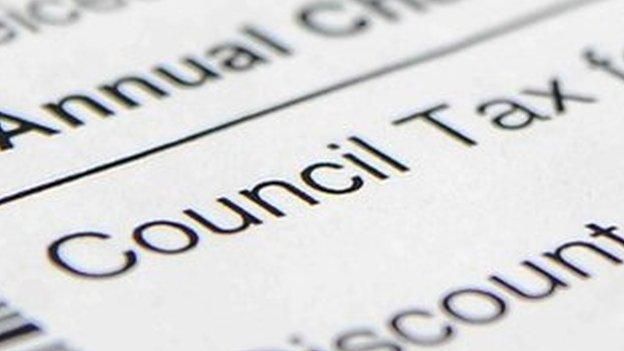
A substantial reform of council tax is expected from the Scottish government
She is talking too about welfare. Again, all parties will have to set out their thoughts as to how they might use pending new powers over benefits.
The Conservative policy offer today was on education: primarily new powers for head teachers over budgets, recruitment and attainment.
But, again, it is their wider strategy which is intriguing. They say they want to offer a credible alternative to the SNP.
Does that mean that Ruth Davidson hopes to enter Bute House, as First Minister? Well, if the voters so will…
In practice, though, the Tory aim for May is not to replace the existing Scottish Government but to supplant Labour as the principal Opposition party at Holyrood. Ms Davidson said she was positing an option to the SNP - then proceeded to devote most of her time to attacking Labour as feckless.
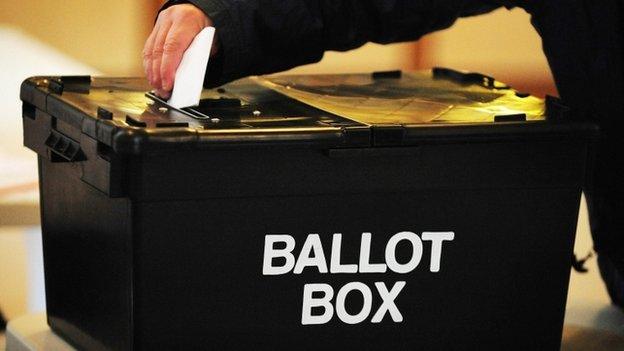
Scotland will go to the polls in May
Willie Rennie said he wanted to offer a "bright, liberal, green" programme for Scotland. I expect Mr Rennie had hoped to occupy the centre ground, should Labour and the Tories be prepared to desert it, to Left and Right.
That seems, in Scotland at least, rather less than likely. Still, Mr Rennie is adamant that his band of five Holyrood Parliamentarians have achieved far more in terms of effective scrutiny than might be thought numerically proportionate. How much more, he mused, could they do with greater representation after May?
'Fair and progressive'
And the Greens? They want to overtake the Lib Dems by promoting environmental concerns and querying GDP growth as the quintessential target.
Patrick Harvie made an interesting point (actually, he made several, but one will do for now). Yes, he said, the new system of local taxation had to be fair and progressive. Politicians favour words like those because they tend not to frighten the voters.
But, he said, the system also had to raise sufficient revenue to fund the improved services promised by various political leaders at Holyrood. That means, bluntly, some folk paying more in tax.
Not sure even a Hogmanay hug will dull the pain of that moment for those who are affected. Folk tend to welcome taxes being levied upon their neighbours.
But then that's politics. And those are the choices which will soon be set before us.
- Published5 January 2016
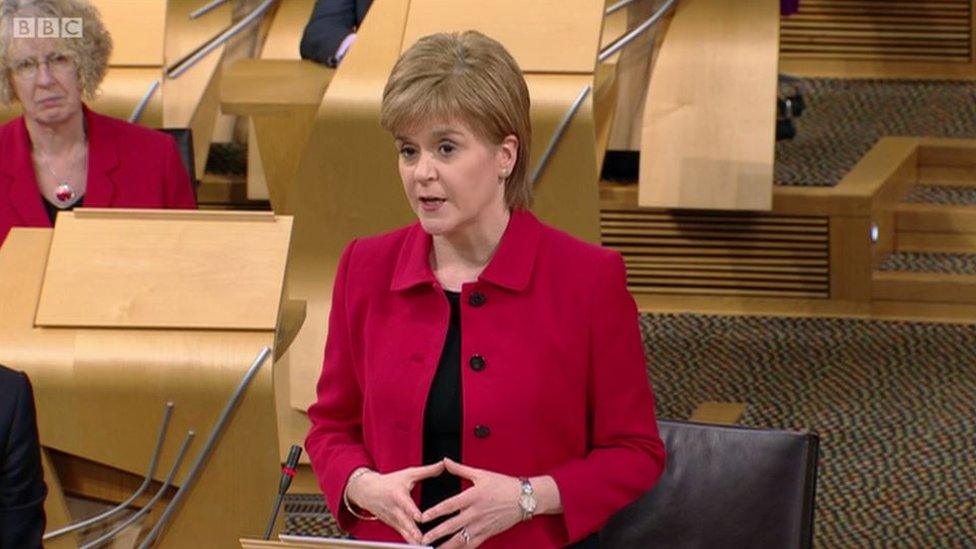
- Published5 January 2016
